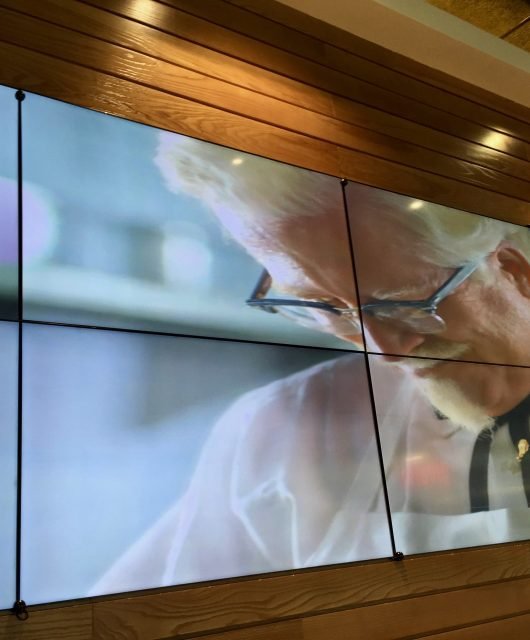Leveraging Innovative Partnerships And Technology To Survive In Times Of Crisis – An Uber Response To The COVID-19 Pandemic
By Frans Hiemstra, General Manager of Uber Sub-Saharan Africa

The COVID-19 pandemic has created an unprecedented set of challenges for countries across the globe. It has become a litmus test for global leaders, national governments, and the frontline workers stepping up to protect the communities they serve, but also for businesses and their leaders, who need to find ways to adapt their business models to ensure they respond to the ‘new normal’.
In June, I took on the role of General Manager for Uber in Sub-Saharan Africa (SSA). While navigating my new role, I worked closely with our teams in seven countries to leverage our technology, build innovative partnerships and to adapt to the ‘new normal’ while supporting the needs of our Uber users, businesses and communities.
Uplifting and supporting COVID-19 impacted communities
During this difficult period where most businesses grounded to a halt, we assessed the new regulations and focused on moving what matters. We adapted to offer Uber Direct, to use our logistics technology and network of drivers to offer on-demand and scheduled last-mile delivery solutions.
This product offered a mechanism for companies, authorities and NGOs to continue on their mission to help those most impacted by the lockdowns and to reach a wider set of communities.
Through our partnership with the Bill and Melinda Gates Foundation in South Africa, they utilised Uber Direct, and to date have delivered more than 480 000 pieces of chronic medication to vulnerable patients. We are also helping feed communities through partnerships with SA Harvest, a food rescue organisation that aims to eradicate food waste, as well as Afrika Tikkun, a non-profit organisation supporting underprivileged communities. As a result, we’ve been able to contribute to food for over 100 000 people including Uber driver & delivery-partners, their families, and other people in need.
We partnered with the Ministry of Humanitarian Affairs in Nigeria to provide relief and support for up to 70 000 households via food bank distributions. This allowed over 3 million school children to be fed, while further supporting governmental response teams towards curbing the outbreak.
Innovation for essential workers
As essential staff worked tirelessly to protect our communities, we felt we could assist to ensure they had a reliable and efficient way of getting to and from where their services are required, out of this need, Uber Medics was introduced. We’ve also partnered with the Ivorian Ministry of Health and leading automobile dealer SOCIDA, to provide free transportation to health workers within Abidjan.
In Kenya, we provided discounted trips for healthcare workers at The Nairobi Hospital and Gertrude’s Children’s Hospital, along with 5000 free trips and 2000 free deliveries from Uber Eats for the COVID-19 Emergency Response Fund and the National AIDS and STI Control Programme (NASCOP).
Tragically, domestic violence has also increased during this period, and shelters require urgent assistance. We partnered with the domestic violence organisation, Nissa Institute for Women’s Development in Johannesburg, to provide free rides and meals for victims to shelters and safe spaces.
We are thankful for Mastercard, who has come on board and committed 120 000 free trips and meals to those supporting communities across the Middle East and Africa.
Increasing opportunities to help sustain independent operators
Driver and delivery-partners are doing essential work that allows communities to keep moving as we fight this virus. It is our responsibility to support them in these uncertain times. We are supporting with financial assistance for up to 14-days, if they test positive for COVID-19, or are are asked to self-isolate.
As people continue to work remotely, fewer Uber trips are happening, resulting in an urgent need for Uber driver and delivery-partners to have access to additional ways to earn money.
To increase earning opportunities, we have facilitated drivers and couriers to cross over to our other platforms via Uber Eats and Uber Connect. Uber Connect is our on-demand C2C courier service through which users can send packages to family and friends was introduced in Ghana, Uganda and Kenya. Furthermore, Uber by the Hour was added to our suite of products in Tanzania, making shopping trips and errands easier.
Adapting safety efforts
Safety has always been a priority to Uber, and even more in this time, we needed to adapt our focus to hygiene and compulsory preventative measures.
To respond to regulations, we partnered with the non-profit organisation Youth Employment Service in South Africa and with UAP Old Mutual in Kenya and Tanzania, to provide drivers with masks.
We launched a Mask Verification feature, to verify that all drivers and couriers are wearing a mask or face covering before they can go online.
The pandemic has put business leaders under pressure to navigate through these challenging times. Their focus has been to ensure their companies survive the effect of the virus, while they protect their employees & partners they work with and contribute towards social upliftment.
Businesses need to continue to invest in technology, adapt and become more agile to be responsive to the current climate. At the same time, there is an opportunity as good corporate citizens to invest time and tech resources that will benefit the communities we operate in.





